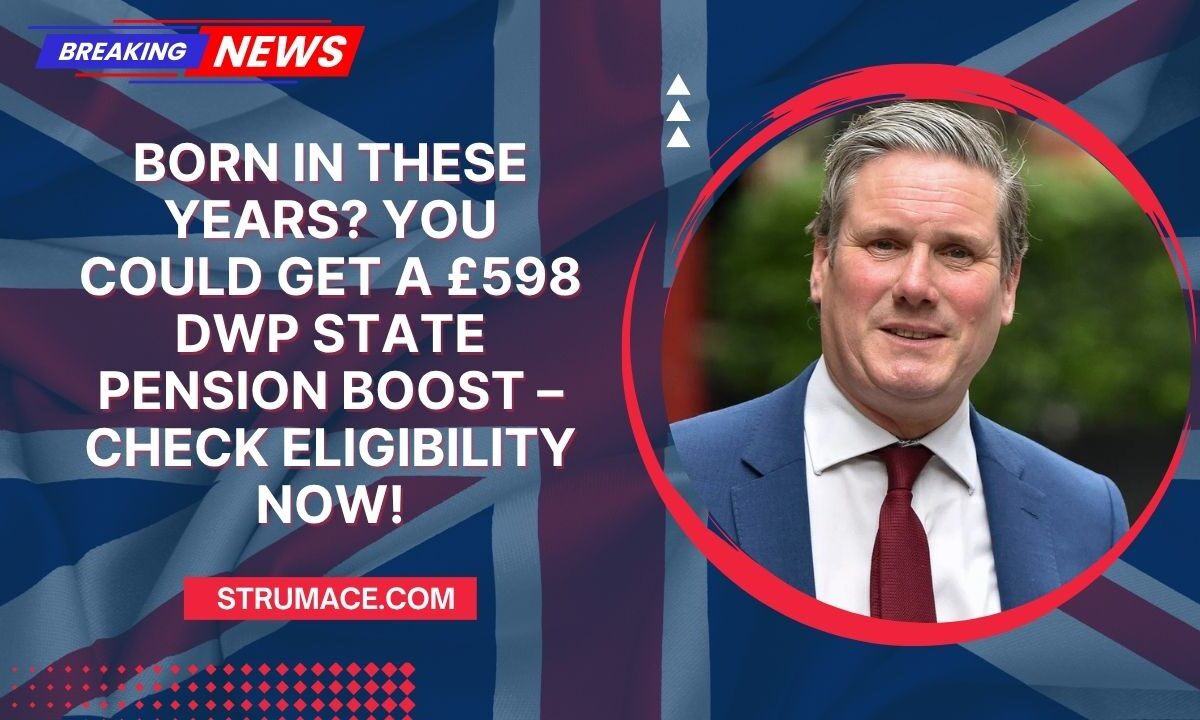A projected 5.0% increase in the State Pension for April 2026, driven by the UK’s Triple Lock guarantee, means eligible pensioners will receive around £598 more per year.
This major uplift affects new State Pension recipients, specifically those born on or after 6 April 1951 (men) or 6 April 1953 (women). If that describes you, read on to see how much your pension could rise and when to expect it.
Who Qualifies for the New State Pension?
- Men born on or after 6 April 1951
- Women born on or after 6 April 1953
These individuals fall under the new State Pension system, introduced in April 2016, and must have at least 10 qualifying years of National Insurance to receive any pension, with 35 years needed for the full amount. A full new State Pension currently pays £230.25 per week for the 2025–26 tax year.
What Does the Projected £598 Boost Look Like?
The Triple Lock guarantee ensures pension increases match whichever is highest: inflation, earnings growth, or a 2.5% floor. Latest data shows:
- Average earnings growth (May–July) stands at 5.0%
- CPI inflation rate is below that
- Therefore, a 5.0% rise is likely for April 2026 uprating.
Estimated Impact:
| Item | Current Value | 5.0% Increase |
|---|---|---|
| Weekly New State Pension | £230.25 | £241.75 |
| Annual Pension (current) | £11,973 | £12,571 |
| Annual Gain | — | £598 |
Why It Matters for These Birth Years
This boost is especially impactful for pensioners born in the defined eligibility years because:
- They receive the new State Pension, which is uprated under Triple Lock each April
- Their weekly payment now exceeds the £230 threshold, pushing annual pension above the £12,570 personal allowance, potentially leading to taxable state pension income for the first time
- The increase offers a rare alignment between earnings growth and pension support.
State Pension Eligibility and Forecast
Eligibility Snapshot:
| Criteria | New State Pension |
|---|---|
| Birth Date | Men: from 6 April 1951; Women: from 6 April 1953 |
| Qualifying Years of NI Contributions | Minimum 10; Full with 35 years |
| Full Weekly Amount (2025–26) | £230.25 |
| Projected Weekly Amount (after increase) | ~£241.75 |
| Expected Annual Boost | ~£598 |
Maintain your NI record and check your forecast regularly to ensure you receive the correct New State Pension.
What Is the Triple Lock and How Is It Calculated?
The Triple Lock guarantee ensures the State Pension increases yearly by the highest of:
- CPI inflation (September previous year)
- Average earnings growth (May–July)
- Minimum guarantee of 2.5%
For the upcoming April 2026 uplift, the earnings growth figure of 5.0% is the frontrunner.
Important Considerations
- If your total income including state pension exceeds the £12,570 personal allowance, some of your pension becomes taxable, even with no other income sources.
- Pension age is set at 66 currently, rising to 67 by 2028 and 68 later this century.
- Those still working beyond pension age no longer pay National Insurance contributions once claiming the state pension.
Check Your Eligibility—This Could Be Your Boost
If you’re a man born on or after 6 April 1951, or a woman born on or after 6 April 1953, and you have at least 10 qualifying years of NI contributions, you are eligible for the New State Pension and the projected £598 boost in April 2026.
That increase, driven by 5.0% earnings growth, could raise your weekly payments to around £241.75, with significant tax implications for some.
This is a real uplift that could materially improve your annual income—so it’s essential to check your entitlement, monitor your NI record, and review your income more closely ahead of renewal.
FAQs
Who qualifies for this £598 boost?
Men born on or after 6 April 1951 and women born on or after 6 April 1953, receiving the New State Pension with at least 10 qualifying years of National Insurance.
How much is the full New State Pension in 2025–26?
The full rate is £230.25 per week, rising to approximately £241.75 per week with the projected 2026 increase.
Will I pay tax on my state pension after this increase?
Possibly. If your total income exceeds the £12,570 personal allowance, some of your pension becomes taxable, even without other income.




